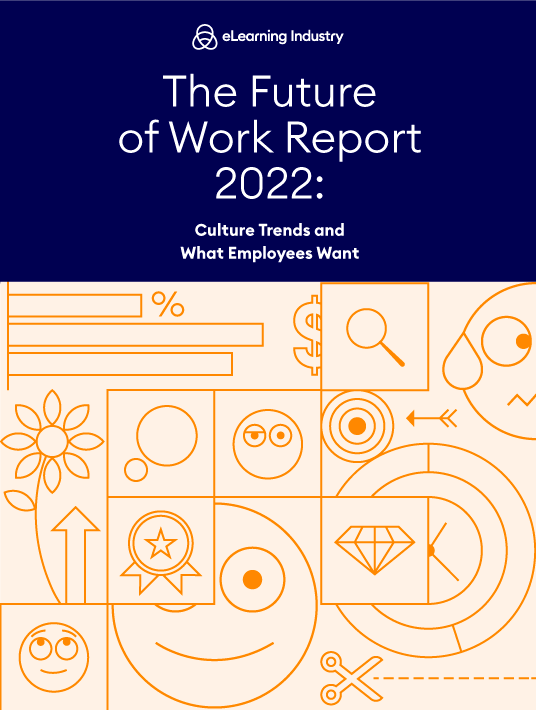eLearning Overview
eLearning enables students and corporate executives to learn from any location and at any time. With a computer or mobile device and an internet connection, you may learn from nearly any location, which means you can study on vacation, at home, or during your break. However, eLearning is about more than just convenience, and there are significant contrasts between eLearning in the corporate sector and eLearning at school. Corporate training's function is to ensure that an individual has the knowledge and abilities to carry out a given task, allowing a company to continue operating.
Corporate training is fundamentally focused on knowledge transmission. Conferences and workshops, for example, are an important but costly element of business, and eLearning makes them more economical and efficient—salespeople, for example, may receive training on new goods and sales methods online. eLearning can reduce expenses and give training in less time, especially when staff is dispersed around the globe.

Do Personnel Benefit From Corporate Online Courses?
A majority of individuals want to advance in their careers. Employees are less committed to their jobs if a corporation does not provide these benefits. Team member satisfaction will drop if organizations do not invest time and money in staff development. Employees who have access to continuing online education are more likely to indicate improved work satisfaction and productivity. Although employee pleasure may not have a monetary value, higher productivity benefits the organization.
eLearning turns out to be more beneficial to employees than standard corporate training programs. However, it should be highlighted that there are certain substantial downsides to eLearning that must be handled. Because most current organizational training follows a rigid paradigm, they aren't as employee-friendly as possible, especially in larger firms with well-developed curriculums and structures. Filing personnel into a meeting room and delivering information caters to only one or two of these methods.
Although most individuals have acclimated to learning in these forms as much as they can, eLearning provides a more inclusive option. To begin with, most companies that provide eLearning use a Learning Management System (LMS). Depending on the platform, there are numerous approaches for designing learning routes that accommodate a wider range of learners. eLearning is incredibly cost-effective: this is certainly the most measurable and real advantage. Travel accounts for up to 60% of management training costs, which are effectively eliminated with eLearning.
Overcoming Limitations To Learning
Educational eLearning efforts may teach corporate eLearning experts and vice versa, as there may be an overlap in academic and business eLearning needs. For example, there is a trend toward incorporating corporate tactics on how specific topics are taught in class in the academic sector. On the business side, they're modifying the concept of using technology to complement the traditional academic classroom, particularly when it comes to incorporating technologies. There is clear overlap: corporate mobile learning, for instance, is becoming increasingly common, with learners owning one or more mobile devices and carrying them to school or work. Trainees have access to the web and social networks through their mobile devices, so all of the technologies needed to obtain information, create content, and communicate with others are easily available, creating an atmosphere favorable to learning.
How To Maintain The Value Of Corporate eLearning
Ongoing corporate training is a win-win situation for all the parties concerned. Online corporate education may contain professional development courses and include training in equality and diversity, safety, harassment, and security. But that doesn't change the detail that it might be a mediocre experience if the delivery is compromised. Some of the ways the learning process can be optimized are through:
1. Investing In The Quality Of The Programs
Don't settle for poor quality or divert resources from building an eLearning course properly. On the contrary, how the course is offered will significantly impact how others perceive it.
2. Analyze The Students
Studying your students is one of the finest methods to establish precise KPIs for any eLearning course. This may appear simple, yet it is easy to overlook during the development process. It's crucial to remember who will be using the software when you examine the information to cover distribution choices and other course-specific considerations.
3. Keep It Concise
Everyone has had that instructor who couldn't keep a lecture short in the past. It would help if you were not that individual to your colleagues.
Corporate eLearning Recipe For Career Success?
For success, an eLearning course must provide just the necessary material because the training isn't aimed at malleable college students but rather at professionals who must manage their work schedules. Not only that, but they are committed enough to their employers to attend corporate education programs to advance their knowledge. As the future of work unfolds, businesses must provide professional growth opportunities to their employees. When this occurs, businesses must put their best foot forward by developing a high-quality eLearning program that can be completed in reasonable sessions and takes the learners' interests into account. With the application of newer technologies, learning in the corporate sector will evolve in the coming years.









